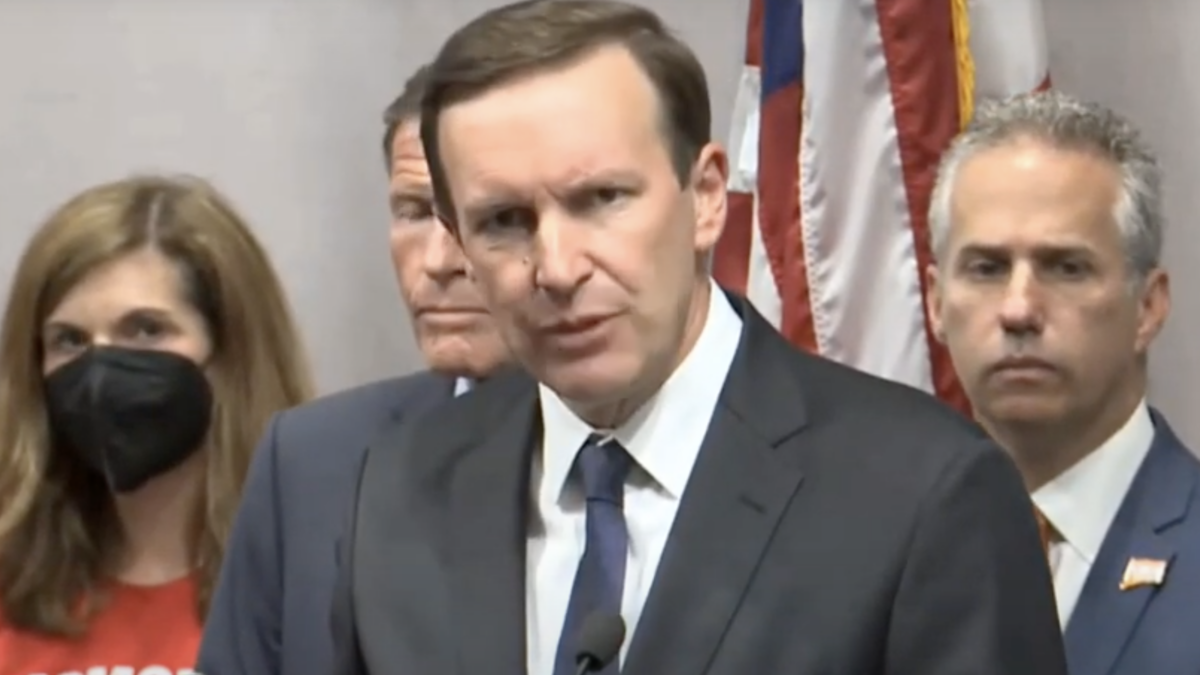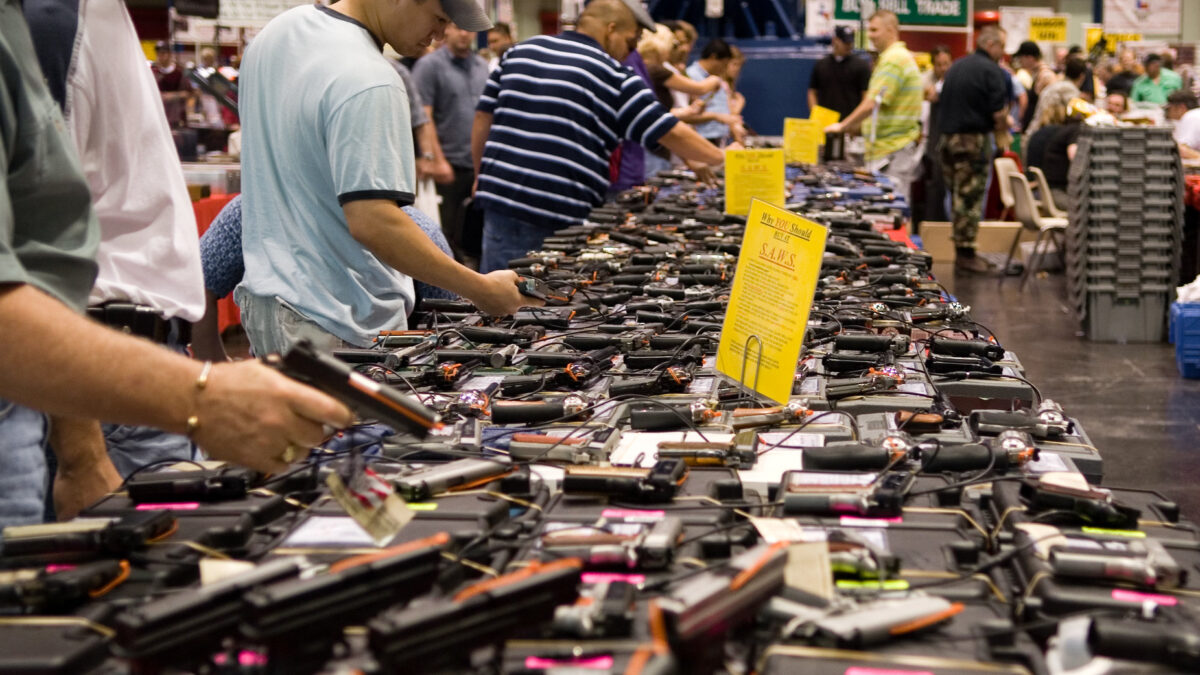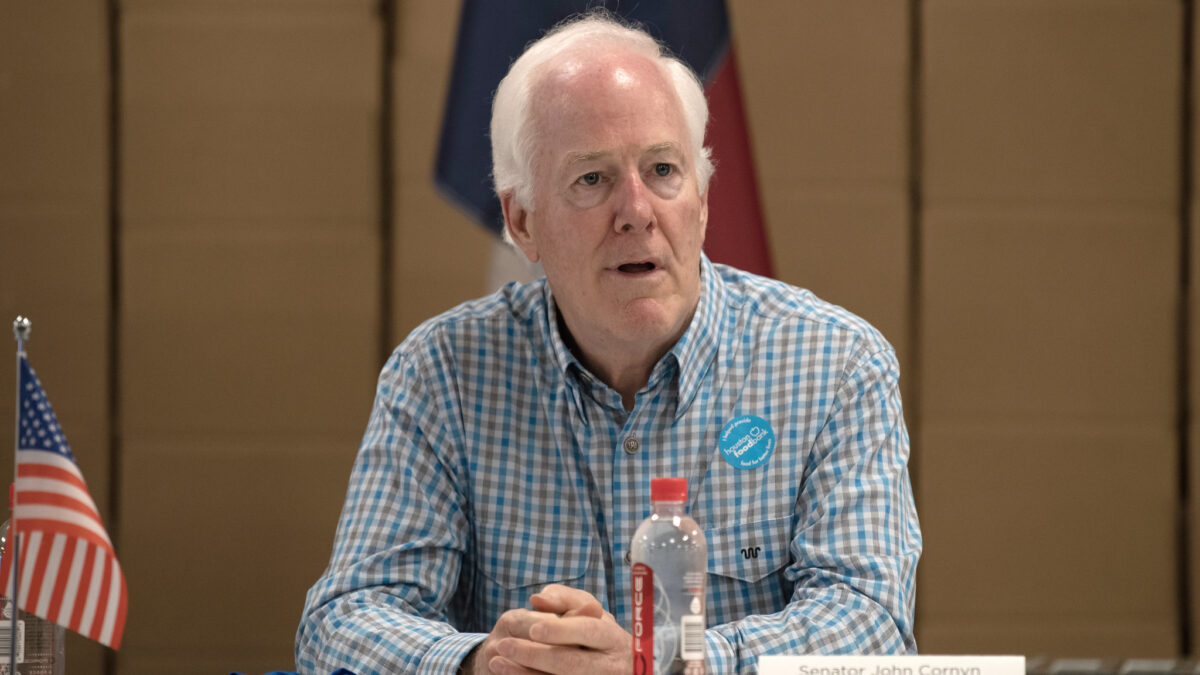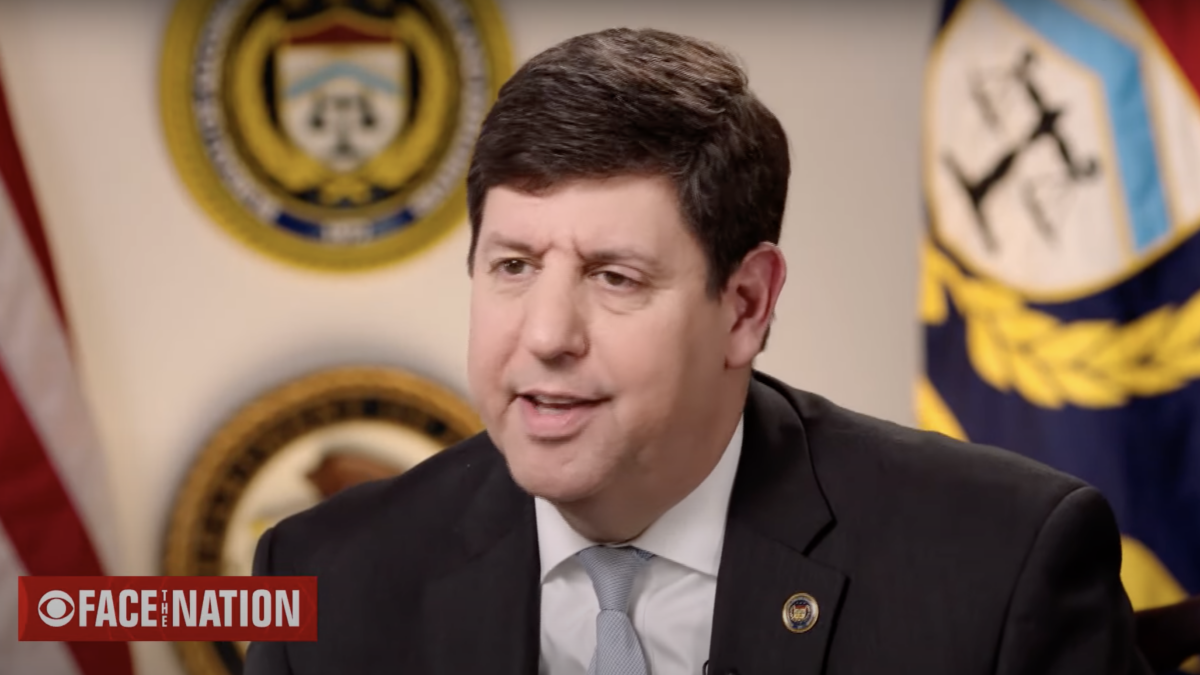Writing on the potential bipartisan gun control law, the level-headed Josh Kraushaar argues the “best way to protect democracy would be for the party in power to seek compromise at the expense of ideological prerogatives” and that leading gun control advocate Chris Murphy was “setting a powerful example of that kind of leadership.”
I’m confused as to how assuming zero political risk by taking what you can from Republicans, while offering nothing in return, is a heroic compromise of ideological prerogatives? It is unlikely that a single liberal voter is going to turn on Murphy for convincing 10 Republican senators to concede that guns, rather than underlying cultural and societal forces, are driving mass shootings.
It’s not as if Murphy agreed to negotiate for concealed carry reciprocity or the funding programs that train teachers to defend themselves and their students — ideas that lead Republican negotiator Sen. John Cornyn allegedly supports. He gave up nothing. Murphy is already re-tweeting The New York Times’ claim that Democrats got more than they had “hoped for.” The bipartisan deal, says The Washington Post, is just a “first step.” In a day or two, if that, liberals will be back to accusing legal gun owners of being abettors of terrorism and child murder.
How bad is the deal? We won’t really know until we see the specifics of the legislation.
According to Murphy — who not ago long was telling reporters, “[s]pare me the bullsh-t about mental illness” — there will be “billions in new funding for mental health and school safety,” including money for “community mental health clinics.” I’m skeptical that more spending is any kind of remedy for mass shootings, but there’s no downside with bringing more focus on mental health concerns. In virtually every recent shooting, from Parkland to Uvalde, the murderer exhibited violent antisocial behavior that was crying out for intervention. Certainly, enhancing programs to spot these troubled kids doesn’t intrude on the Second Amendment. Presumably this is a component everyone wants.
After that it gets more complicated.

“Red flag laws” — perhaps the only measure within the senators’ framework that could, conceivably, stop mass shootings — are beyond the federal government’s scope. So, 10 Republican senators have agreed to bribe states into participating in passing emergency risk-protection legislation that allows courts to take guns from those deemed a threat to themselves or others.
When carefully written, red flag laws may have merit, but prudence is rare. In states like California, Connecticut, and Maryland, authorities can confiscate weapons merely on the strength of an uncorroborated allegation by family members, coworkers, law enforcement officers, or others without any kind of genuine due process. Will Senate Republicans guarantee that funding for state laws is contingent on laws that have protections for basic due process rights, penalties for bringing frivolous or false charges against gun owners, and assurances that those who receive the proper mental health treatment get their weapons returned, because in many places a “temporary” petition means a lifetime ban? Seems unlikely.
Not that long ago, Democrats wanted to pass a bill that would have stripped anyone on terror watch and no-fly lists — some 40 percent of whom have nothing even tangentially to do with terrorism — of both their Fifth and Second Amendment rights. Republicans have no reason to trust their devotion to due process.

The Domestic Violence Offender Gun Ban, an amendment to the Gun Control Act of 1968, already prohibits anyone convicted of a domestic violence misdemeanor, or anyone under a restraining order, from possessing a firearm. The definition of a partner is somewhat opaque. If the new law merely includes boyfriends under the law, that’s great. In the past, however, Democrats have not only tried to expand the definition of partner, but also the reasons for losing your gun rights to include many types of non-violent misdemeanors. Not so great.
It is also somewhat unclear whether the bipartisan deal is aimed at those convicted of a crime, rather than merely accused of it. Murphy says “convicted” but the Times’ news story says the law will harder for those “accused” of domestic violence to obtain guns — obviously, an important distinction.

Straw purchases, buying a gun legally on behalf of a person who can’t, and gun trafficking are both already illegal. The Feds prosecute people on both counts every single day. Democrats, unable to pass “universal” background checks, have been looking to make it so prohibitively difficult for individuals, non-dealers, to sell or gift a gun that they abandon the practice altogether. This would be a good means of achieving that goal.
The framework released by senators also promises enhanced background checks for those under 21. It’s unclear how that would have stopped any mass shooting. Most of these murderers have no record. Do we think they won’t just wait a few more days? Senators also promise to “crack[] down on criminals who illegally evade licensing requirements.” What does that even mean? It’s already illegal. Will the law say that it’s super-duper illegal, or will there be new regulations that make it easier for the federal government to target dealers and revoke Federal Firearms Licenses over innocent paperwork errors?
We don’t know yet. What we do know is that Democrats will push the law as far as possible, because for them this is all part of a long, incrementalist play.









